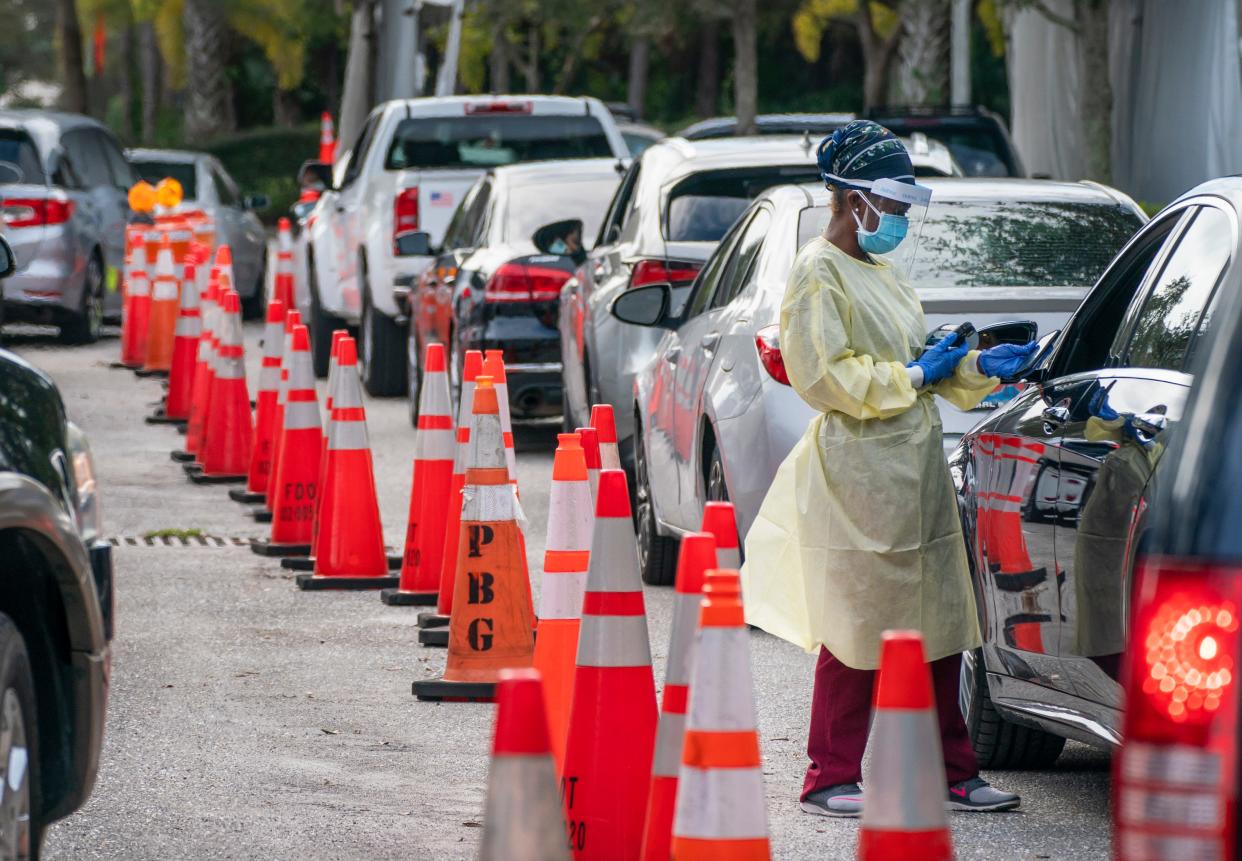Should I tell I tested positive for COVID-19? | Opinion

Count me in. I’m one of the nearly 2 million Americans who tested positive for COVID-19 over the holidays even though I had both vaccine shots and the booster. Fortunately, I had no symptoms. Like so many others, I was completely shocked to read my test result and felt kind of ashamed. "Do I really have to tell people?" I wondered to myself.
The rapid-fire spread of the omicron variant has magnified our great national debate about individual liberty versus the greater good. But, as I knew, and then had affirmed by two medical ethicists, I had an obligation to tell others whom I might have put at risk.
Quarantining for the good of all
I texted my family. And then I made a list of everyone I knew that I had been in close contact with (which the Centers for Disease Control and Prevention defines as being less than 6 feet away for 15 minutes over a 24-hour period). I called those friends I knew to be infrequent email users, and then sent individual emails to about a dozen others.
Is it the flu, a cold, or the omicron variant?: How to know, and when to get tested for COVID
More: Florida reports almost 400,000 new COVID infections, skyrocketing hospitalizations
One friend quickly wrote back, “You’re so courageous.” Another, “That’s integrity.” Honestly, I didn’t feel courageous or virtuous; I felt disappointed and sad.
Amy McGuire, director of the Center for Medical Ethics and Health Policy at Baylor College of Medicine, insists that “we all must give up some individual liberties, including our privacy, for the benefit of the community … so that others can take precautionary measures to protect themselves and their loved ones.”
If you don’t tell the people you may have unwittingly infected, how can they in turn protect themselves and their own loved ones? That’s the very definition of the common good, and it’s what we mean when I say we’re all in this together.
Exposing others to the virus can have drastic consequences. The high transmissibility of the omicron variant makes it more critical, not less, to disclose infection. Arthur Caplan, professor of medical ethics at New York University, acknowledges that we don’t yet know how “nasty,” as he put it, omicron could be for the general population. But, what about our privacy? I asked. He says there’s no reason to disclose having high blood pressure or cancer, but contagious diseases are different. The duty to tell others about an infection has long been recognized, both legally and ethically. Think HIV, tuberculosis, mumps and measles.
COVID-19 charts: See the latest data for Palm Beach County and Florida
I know these decisions can be complicated, and I wondered – worried – about folks who can’t afford to stay home during a quarantine period. Yes, it might be tempting to keep quiet about a positive test, especially if you don’t have symptoms, if telling your employer translates into lost pay. I spoke with a CEO of a small business in Lexington, Kentucky, and she told me they’ve just come up with a solution: If an employee is vaccinated and still gets COVID-19, that person will get paid for lost days. If someone who is not vaccinated gets sick, the answer is no.
While still in “COVID jail,” I was out walking my dog – permissible during quarantine as long as you’re masked – when a neighbor asked whether I were still in isolation period. She thanked me for doing the right thing, even though there are no COVID police watching over us. As Baylor’s McGuire said, “We need to embrace an ethic of solidarity, which means to care for each other and about each other, now more than ever.”
COVID-19 Etiquette Recap:
Get tested: Take either a rapid antigen or PCR test before attending any gathering that individuals whose age and health may make them susceptible to the virus.
Disclose: If you test positive, or have a known COVID-19 exposure, you must tell others with whom you’ve been in close contact. No ifs, ands or buts.
Stop the spread: Information from reputable sources will help others make informed decisions, get tested themselves and prevent the continued spread of this virus.
Steven Petrow, a writer on civility and manners and a member of USA TODAY's Board of Contributors. This column originally appeared in USA Today.
This article originally appeared on Palm Beach Post: Should I tell people that my COVID-19 test came back positive?

